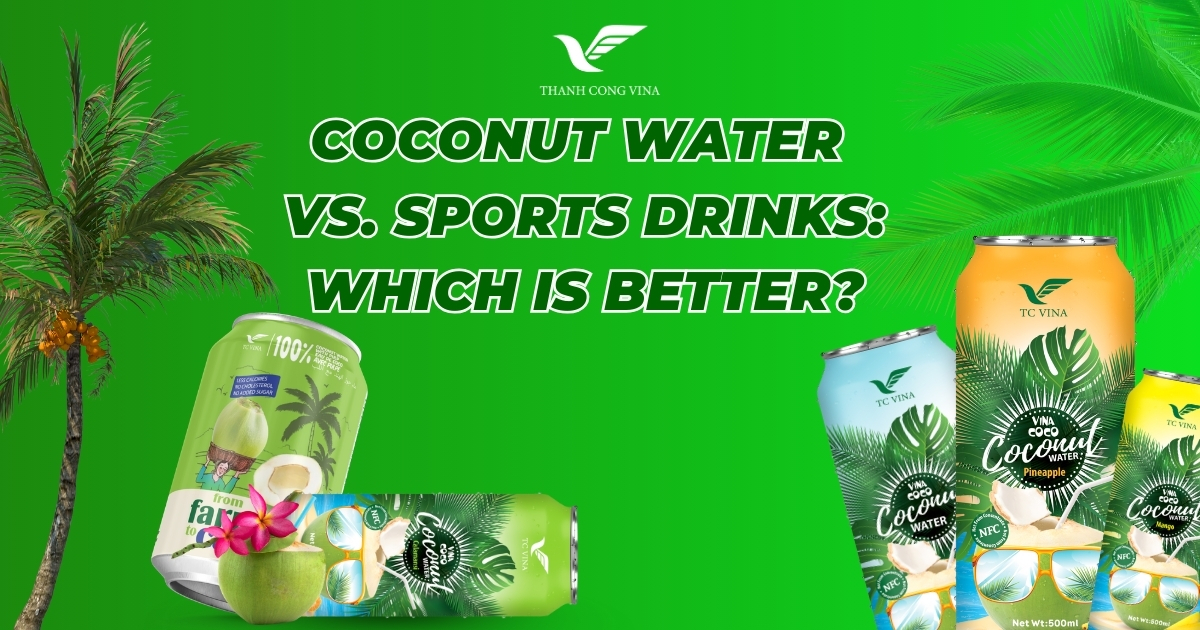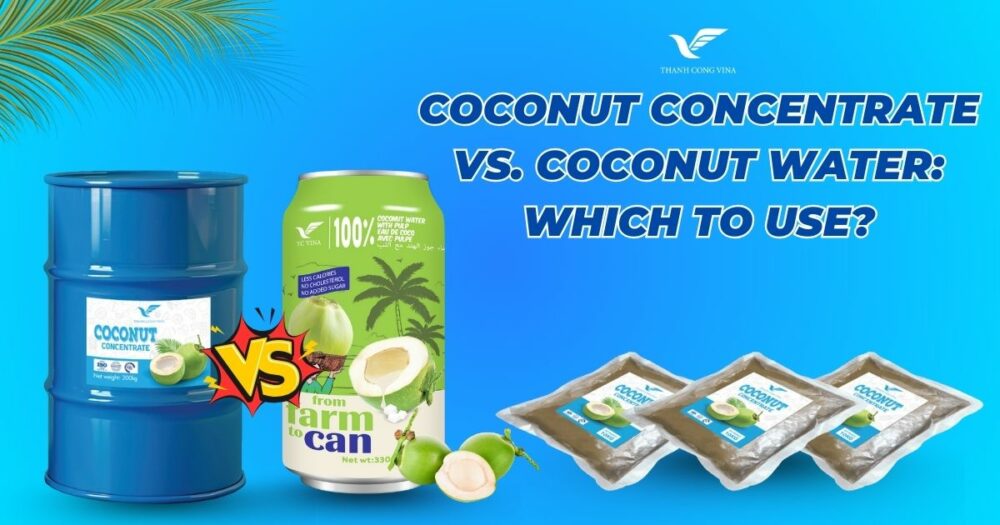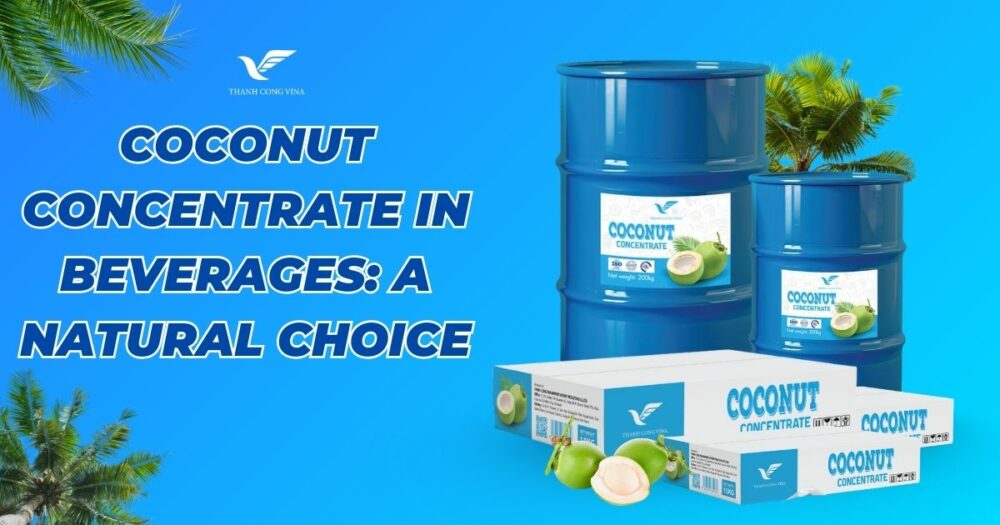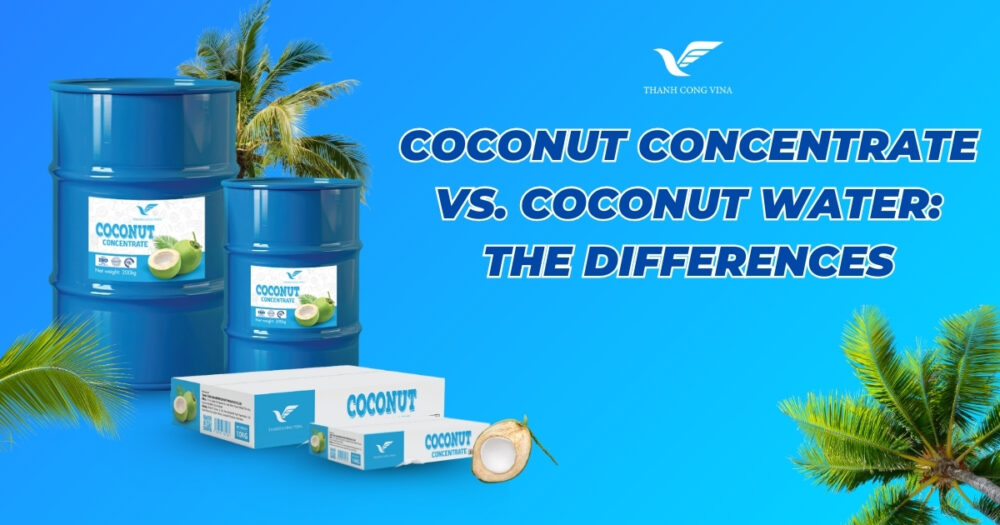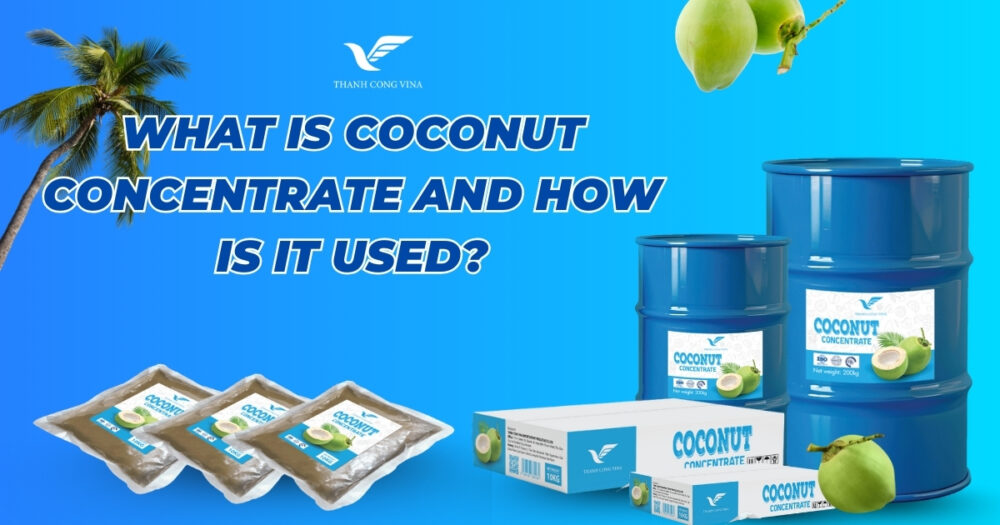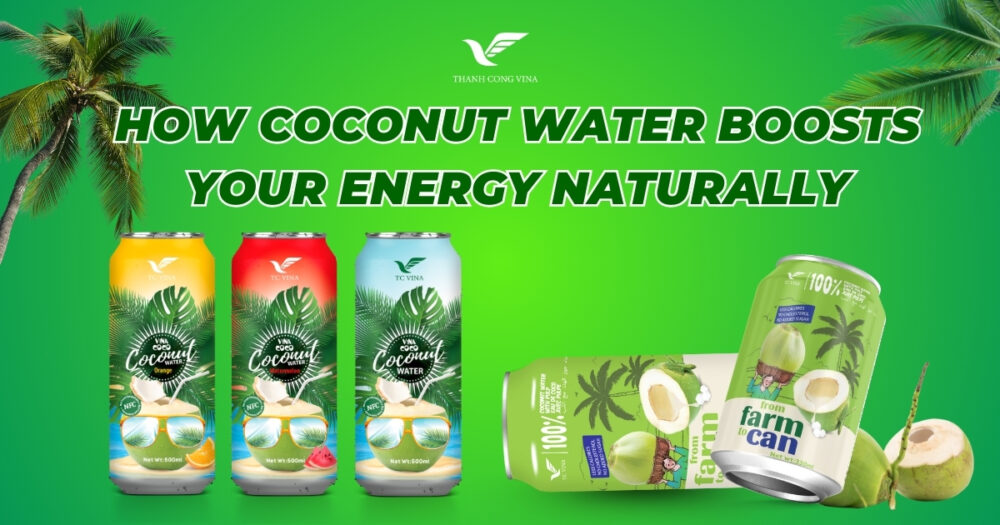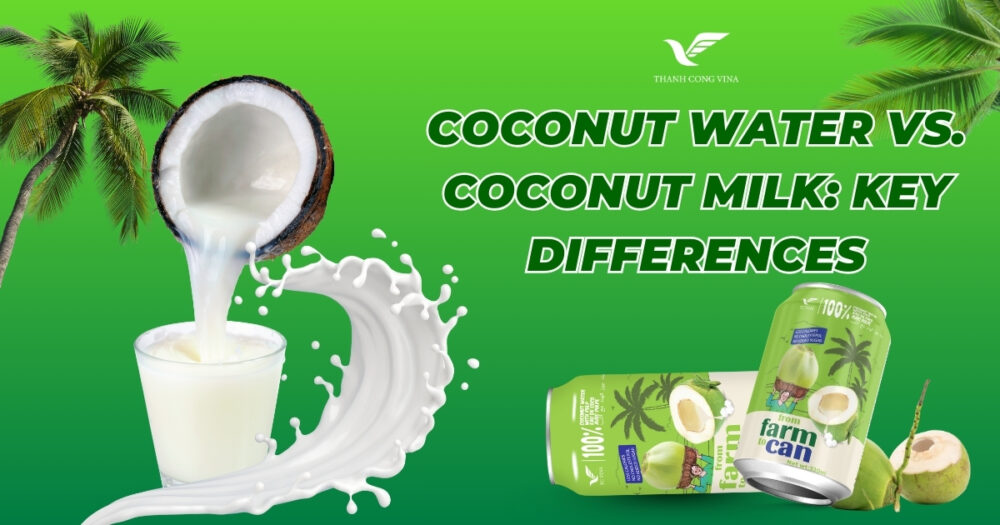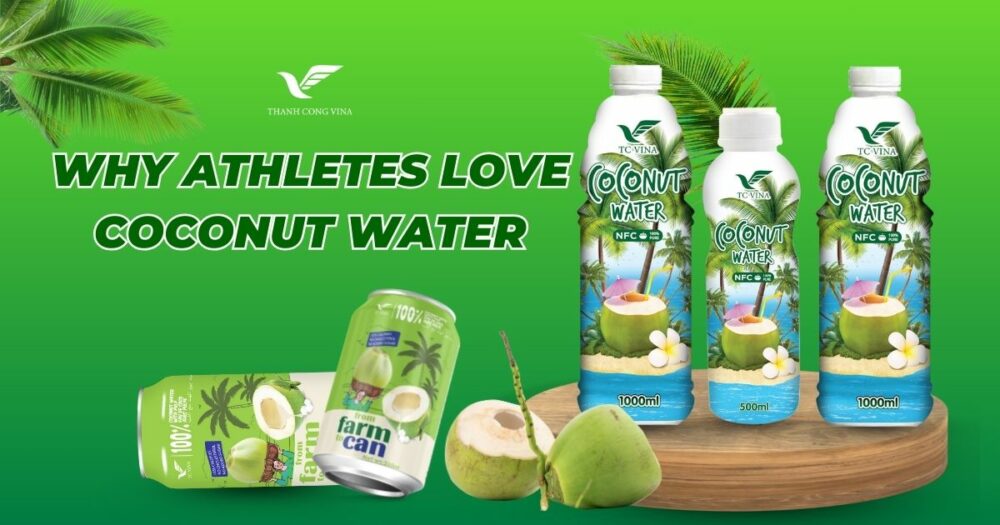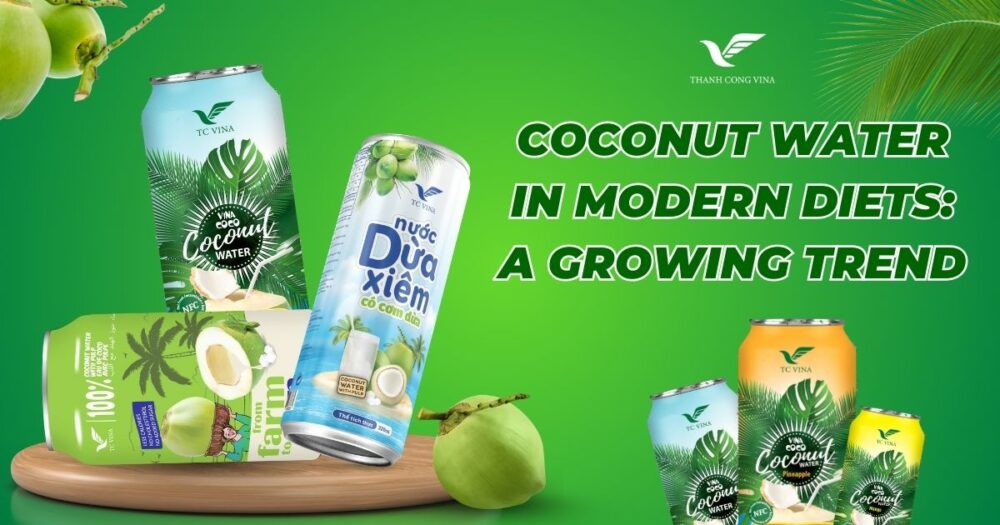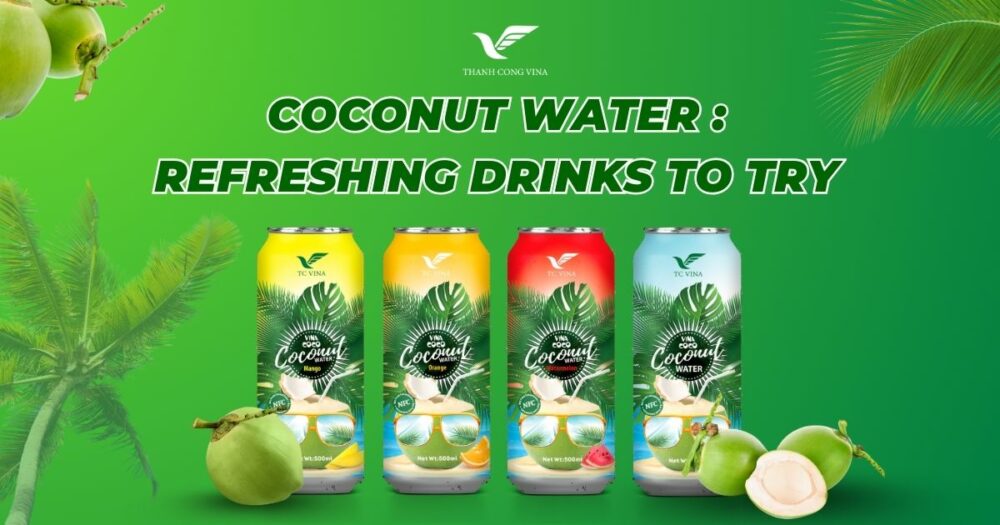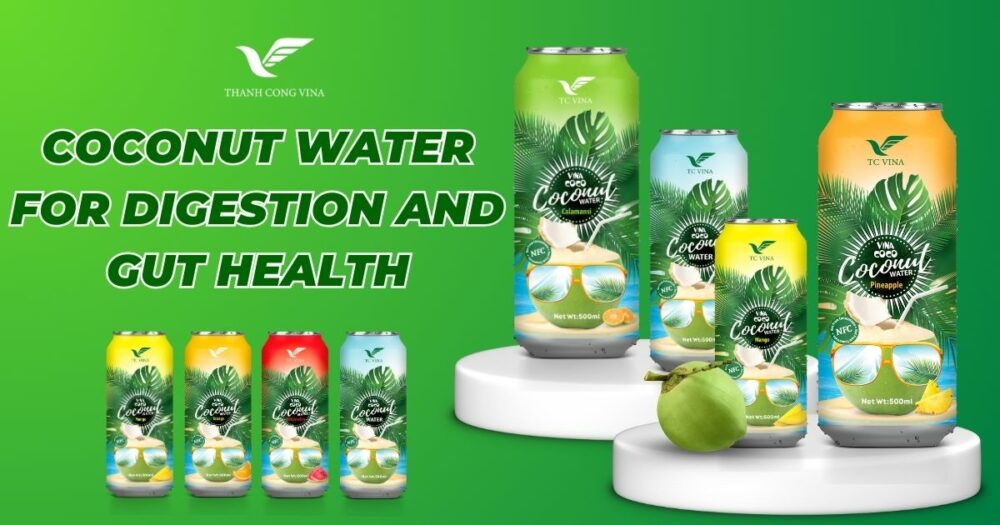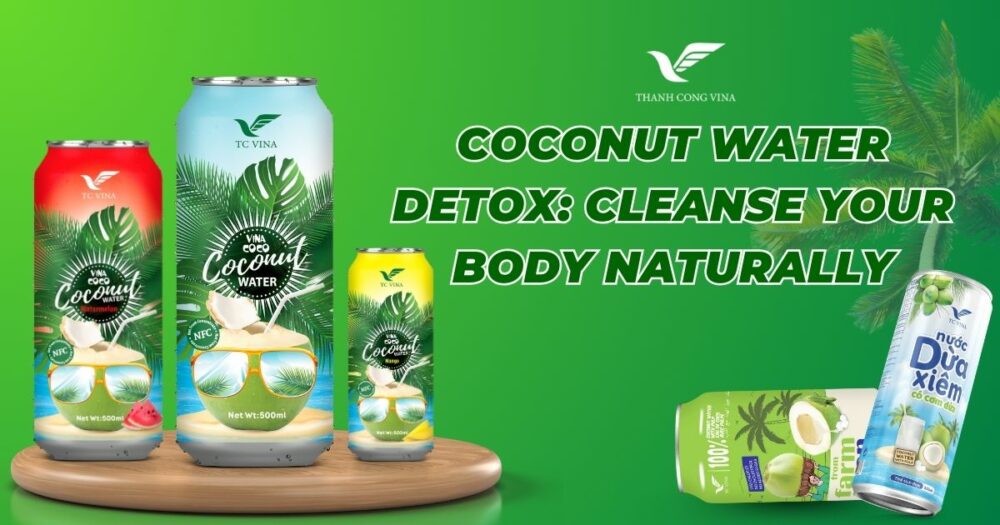Staying hydrated is essential for everyone, but it becomes even more critical for athletes, fitness enthusiasts, and individuals who engage in physically demanding work. Over the past few decades, sports drinks have dominated the hydration market, marketed as the go-to solution for replenishing electrolytes and maintaining energy levels during and after exercise.
At TCVina, there has been a major shift in recent years. Coconut water, often referred to as “nature’s sports drink,” has surged in popularity across the globe. With its natural electrolyte balance, refreshing taste, and absence of artificial additives, coconut water has become a strong contender against commercial sports drinks.
This article explores in depth the nutritional values, benefits, drawbacks, and real-world applications of coconut water and sports drinks to determine which option truly reigns supreme for hydration and overall wellness.
What Is Coconut Water?
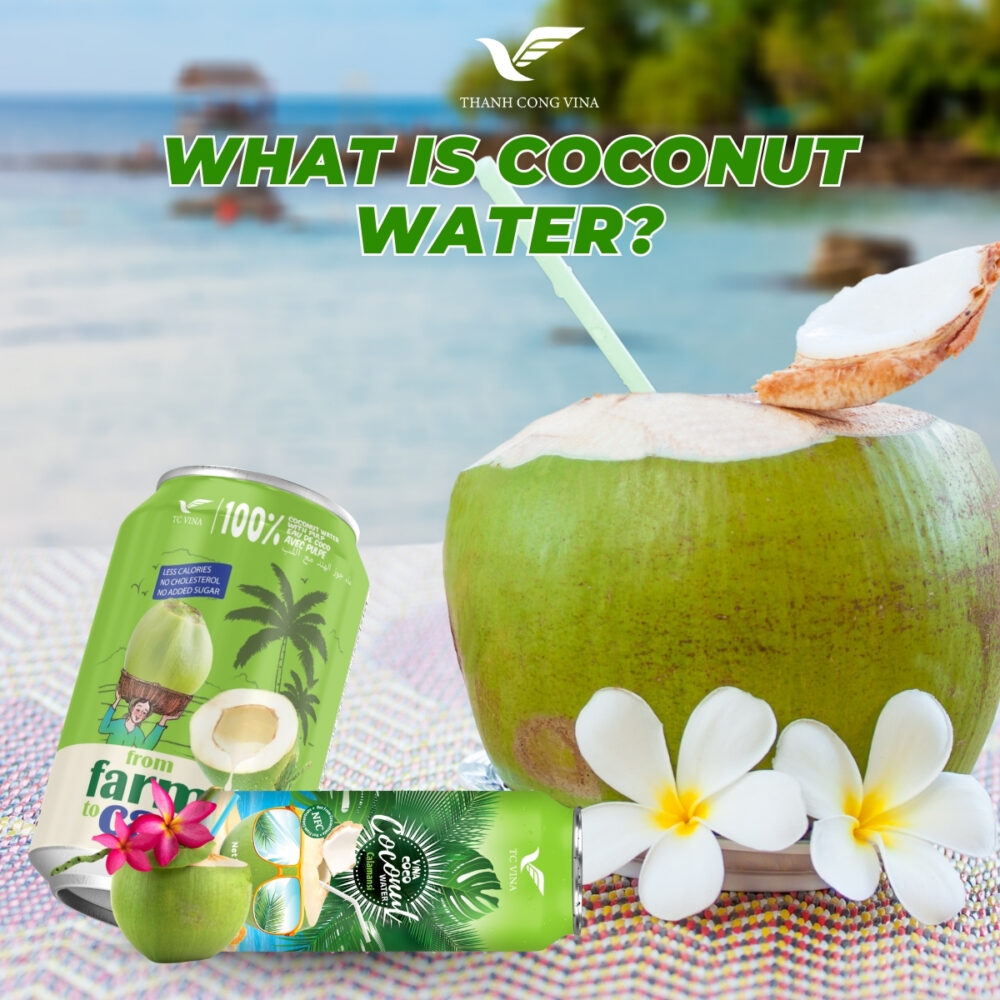
What Is Coconut Water?
Coconut water is the clear, slightly sweet liquid found inside young green coconuts. Unlike coconut milk, which is made from the flesh, coconut water is naturally fat-free, low in calories, and rich in essential minerals such as potassium, magnesium, calcium, and sodium.
It has been consumed in tropical regions for centuries as both a refreshing drink and a natural remedy for dehydration. Today, coconut water is available worldwide in fresh and packaged forms, often marketed as a healthier alternative to traditional sports drinks.
What Are Sports Drinks?

What Are Sports Drinks?
Sports drinks are commercial beverages formulated to help athletes and active individuals rehydrate and replenish electrolytes lost through sweat. Popular brands contain water, electrolytes (mainly sodium and potassium), carbohydrates (from sugars), and often artificial flavors, colors, and preservatives.
They are effective in replacing fluids and providing quick energy during prolonged or high-intensity exercise. However, they are also criticized for their high sugar content and artificial additives that may not align with long-term health goals.
Nutritional Profile: Coconut Water vs. Sports Drinks
| Nutrient (per 240ml) | Coconut Water | Sports Drinks (Average) |
|---|---|---|
| Calories | 45–60 | 120–200 |
| Carbohydrates (Sugars) | 9–11g (natural) | 20–30g (added sugar) |
| Sodium | ~250mg | 200–400mg |
| Potassium | ~600mg | 30–50mg |
| Magnesium | ~25mg | Minimal |
| Calcium | ~40mg | Minimal |
| Additives | None if pure | Artificial flavors/colors |
Key Takeaways:
-
Coconut water is lower in calories and sugar.
-
Sports drinks generally contain more sodium but far less potassium.
-
Coconut water offers additional nutrients like magnesium, calcium, and antioxidants.
The Role of Electrolytes in Hydration
Electrolytes are minerals that carry an electric charge, essential for:
-
Muscle contractions
-
Nerve signaling
-
Fluid balance
-
Preventing dehydration and cramps
Coconut Water’s Advantage
Coconut water naturally contains high levels of potassium, magnesium, and a moderate amount of sodium—providing a balanced electrolyte mix that supports both hydration and recovery.
Sports Drink’s Advantage
Sports drinks are sodium-heavy, which is beneficial during prolonged endurance events in hot conditions when salt loss is significant. However, the lack of potassium makes them less balanced than coconut water.
Benefits of Drinking Coconut Water
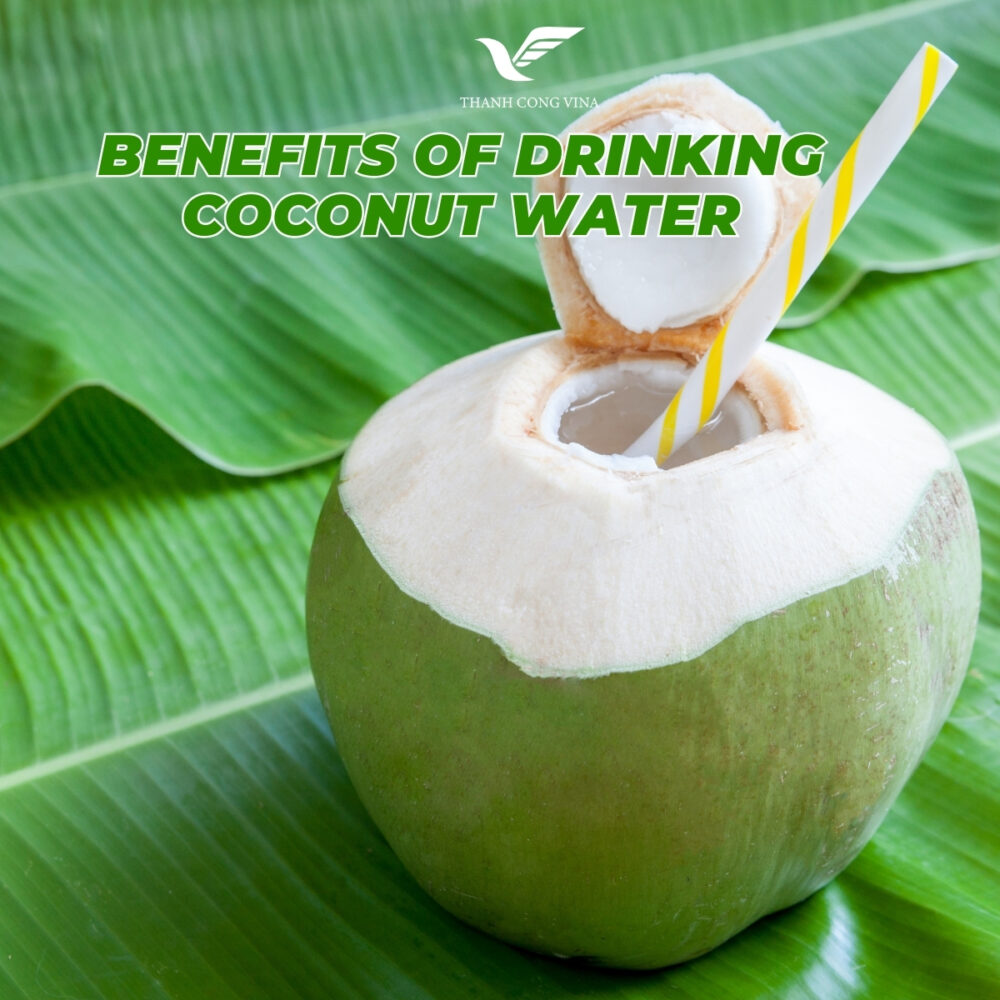
Benefits of Drinking Coconut Water
1. Natural Hydration
Coconut water is 95% water and isotonic in nature, meaning it has a similar electrolyte concentration to human blood. This allows for quick absorption and efficient rehydration.
2. High in Potassium
With more potassium than a banana, coconut water helps regulate blood pressure, reduce muscle cramps, and support heart health.
3. Antioxidant Protection
Coconut water contains vitamin C and other antioxidants that reduce oxidative stress caused by intense exercise.
4. Weight-Friendly Option
At fewer than 60 calories per serving, coconut water is significantly lighter than most sports drinks, making it ideal for weight-conscious individuals.
5. Better for Long-Term Health
Unlike sports drinks, coconut water contains no artificial sweeteners, preservatives, or synthetic additives, aligning with natural and sustainable lifestyles.
Benefits of Drinking Sports Drinks
1. Rapid Energy Boost
Sports drinks provide quick carbohydrates in the form of sugar, delivering immediate energy during endurance activities.
2. High Sodium Replacement
For athletes who sweat heavily, sports drinks are effective in replacing lost sodium, preventing hyponatremia (low sodium levels).
3. Proven for Extreme Sports
During marathons, triathlons, or ultra-endurance events, sports drinks can be effective because of their high sugar and sodium levels that maintain performance under extreme conditions.
Coconut Water vs. Sports Drinks: Which Is Better for You?
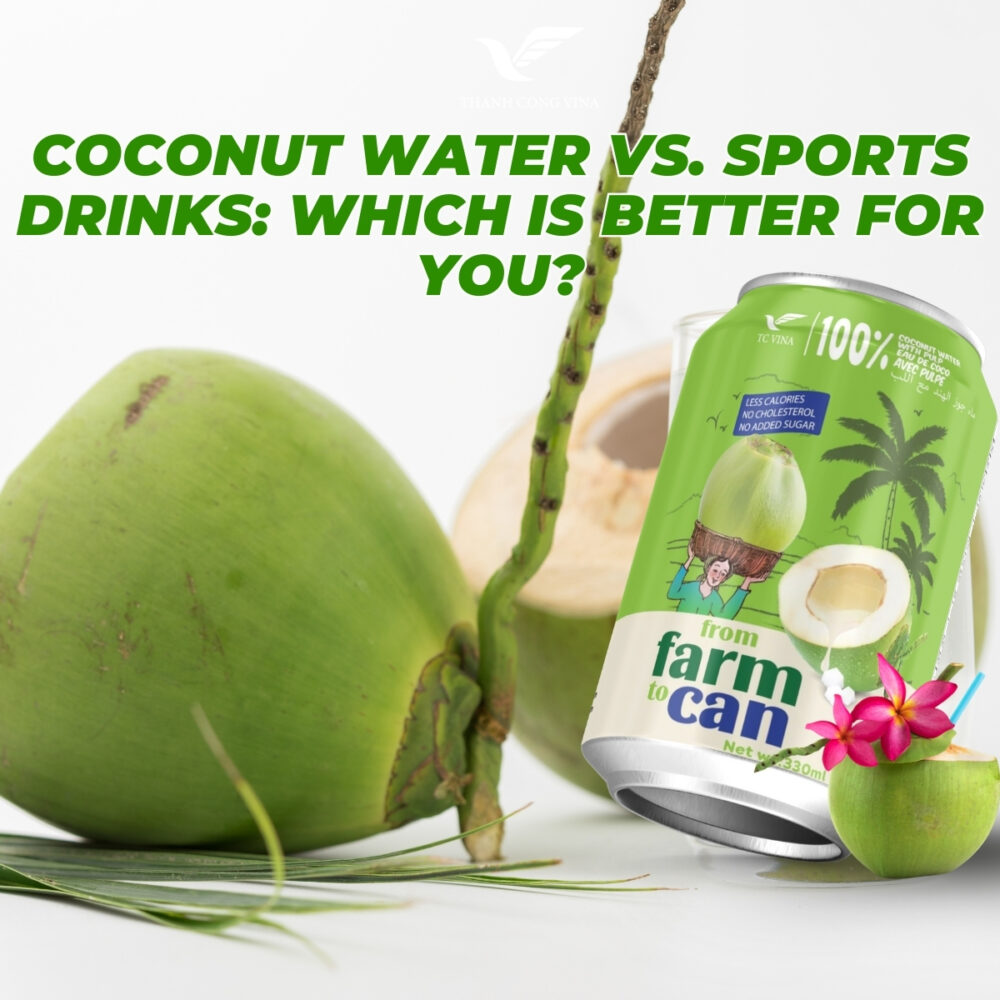
Coconut Water vs. Sports Drinks: Which Is Better for You?
For Everyday Hydration
Coconut water wins. It is healthier, lower in calories, and provides a natural electrolyte balance without unnecessary additives.
For Weight Management
Coconut water is the clear choice, offering hydration with minimal calories.
For General Fitness and Workouts
Coconut water provides enough electrolytes for most gym sessions, yoga classes, or moderate sports.
For Endurance Athletes in Extreme Conditions
Sports drinks may be more effective for marathon runners, cyclists, or triathletes who need higher sodium and carbohydrate intake during extended performance.
How to Incorporate Coconut Water Into an Active Lifestyle
-
Pre-Workout Hydration: Drink a glass 30 minutes before exercise.
-
Post-Workout Recovery: Consume 1–2 cups within 30 minutes after activity to restore electrolytes.
-
Homemade Natural Sports Drink: Mix coconut water with a pinch of sea salt and fresh lemon juice.
-
Smoothie Base: Blend with fruits like bananas and berries for an antioxidant-packed recovery drink.
-
Daily Routine: Replace soda or artificially flavored drinks with coconut water for better long-term hydration.
Choosing the Best Coconut Water
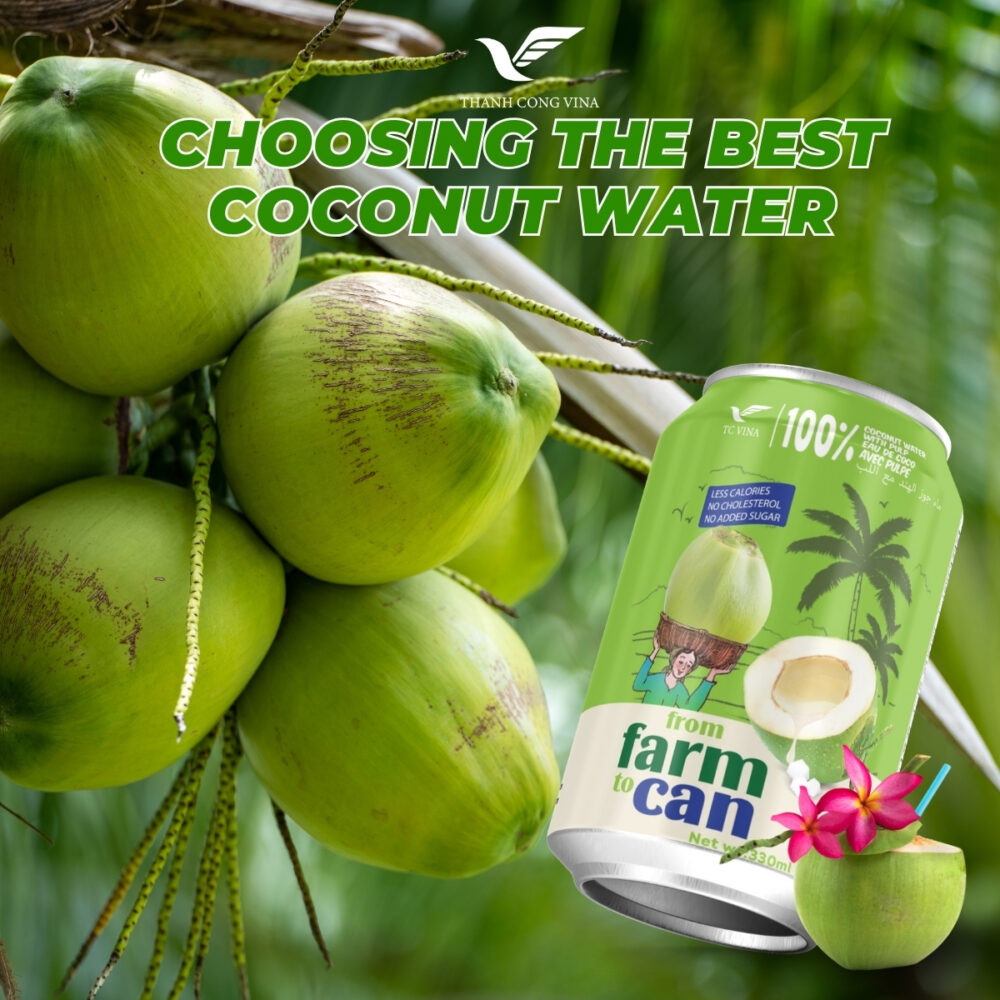
Choosing the Best Coconut Water
-
Fresh Coconut Water: Offers the highest nutrient content but limited availability in non-tropical regions.
-
Packaged Coconut Water: Convenient, but always check the label for 100% pure coconut water with no added sugar.
-
Organic Options: Ensure sustainable farming practices and chemical-free production.
Thanh Cong Vina is dedicated to delivering premium coconut water products that are natural, high-quality, and internationally certified, ensuring consumers receive all the benefits of this tropical superdrink.
Conclusion: The Better Choice
So, when comparing Coconut Water vs. Sports Drinks, which is better?
The answer depends on your needs:
-
For daily hydration, weight management, skin health, and overall wellness, coconut water is the superior choice.
-
For ultra-endurance athletes in extreme conditions, sports drinks may provide the extra sodium and carbohydrates required.
However, for the majority of people—whether athletes, fitness enthusiasts, or everyday consumers—coconut water emerges as the healthier, more natural, and sustainable option.
By choosing coconut water, especially from trusted brands like Thanh Cong Vina, you are investing not only in better hydration but also in long-term wellness and sustainability.

